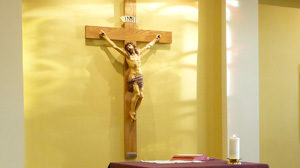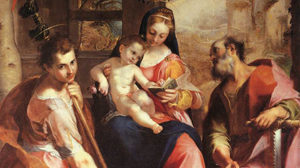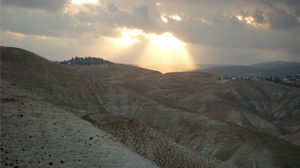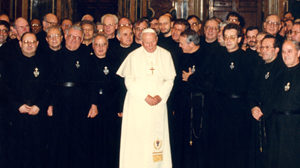Scripture:
Wisdom 3:1-9
Romans 5:5-11 or 6:3-9
John 6:37-40
Reflection:
Today is a day to remember our deceased family members, loved ones, friends, and others whose lives have ended and for whose lives we are grateful.
In the history of this day, it is very obvious that nationalities, cultures, and religions have contributed to the customs associated with remembering the dead. With the association of November 1st as All Saints Day with November 2nd, All Souls Day (and including the vigil feast of All Hallows Eve—Halloween, Christians have, over the centuries, developed and passed on popular customs as reverential expressions of their religious convictions about death and salvation.
Today, we in the United States may look back over these customs of our ancestors, and think of them as “quaint” or, perhaps, superstitious. For example, food left out for the visiting spirits of the dead, altars and candles to comfort those waiting in darkness for their turn to enter paradise from purgatory; all Christian traditions associated with November 2nd reflect the beliefs of some particular time in history.
At the same time, we in the United States today, seem intent on giving a new meaning to our remembering the dead, we have made Halloween into the runner-up after Christmas for holiday spending. It isn’t the children who go trick or treat-ing on Halloween who are laughing all the way to the bank.
What do the suggested readings for today’s Mass tell us about our passage through death into eternal life? How should we remember the dead in a way that pays them tribute and respect?
But they are in peace. (WIS 3:3)
What would we give to have real peace in our lives and in our world? If peace were only the absence of conflict, how much we would gain by seeking it. But even though we could work our way through the conflicts of the present political, cultural, religious and personal universes that we inhabit, would we have peace? Something else must be added for absence of conflict to bring about real peace. It is the assurance that we don’t have to fall back into conflict at the next stage of life, the next political era, or the next cultural phenomenon that drapes our generations in misunderstandings and exaggerated economic competitiveness.
If, then, we have died with Christ, we believe that we shall also live with him. We know that Christ, raised from the dead, dies no more; death no longer has power over him. (ROM 6:8-9)
The citation from the Letter to the Romans tells us that true peace is possible if we live with him. Those who have died in Christ truly and fully live in the peace of Christ; they will not fall out of that peace. Those of us still engaged in our Christian, mortal lives, identify with the dying of Christ through our baptism, the epic symbol of death to sin and rising to new life that makes us living members of the Body of Christ.
Today, then, let us engage our customs and traditions; let us offer prayers for the peace of Christ to bond us with our beloved dead; and let us try just a little harder to live the peace that also bonds us with our brothers and sisters still living our mortal lives.
Fr. Arthur Carrillo, C.P. is the director of the Missions for Holy Cross Province. He lives in Chicago, Illinois.








